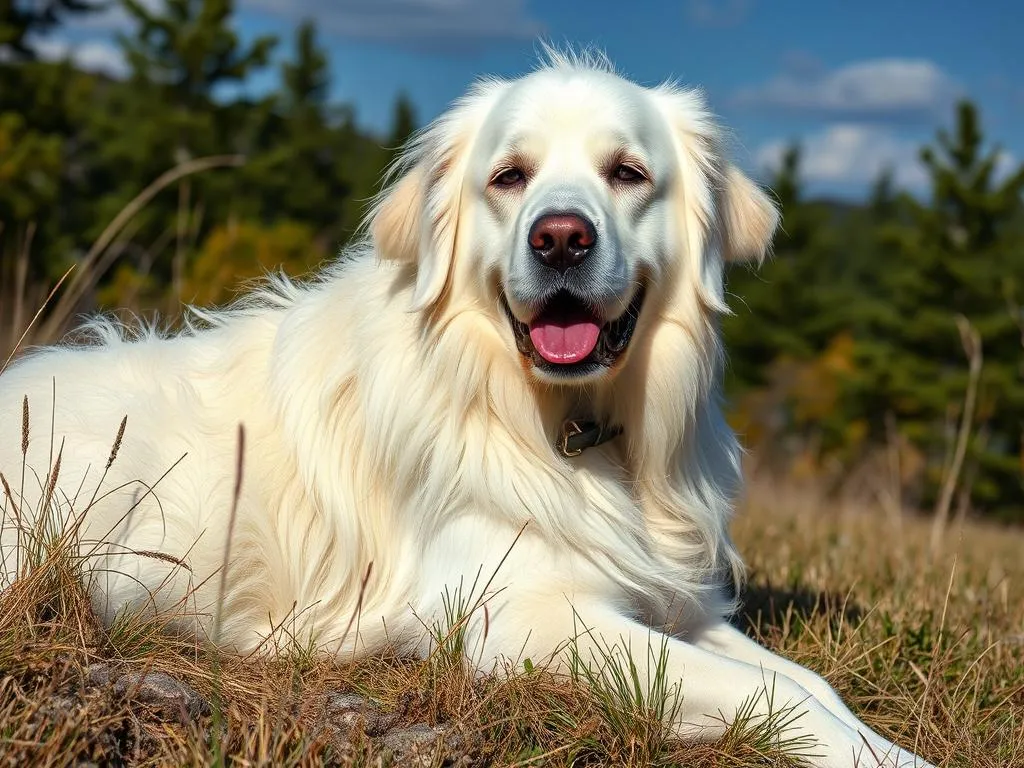
The Great Pyrenees is a magnificent breed well-known for their gentle demeanor and striking appearance. With their long, flowing white fur and impressive size, these dogs have won the hearts of many as loyal companions and family protectors. However, before bringing a Great Pyrenees into your home, it’s essential to understand the various costs associated with their ownership. This article aims to provide a detailed look into the financial commitment required when welcoming a Great Pyrenees into your life.
Initial Costs of Acquiring a Great Pyrenees
Purchase Price
When it comes to acquiring a Great Pyrenees, the purchase price can vary significantly based on several factors. On average, you can expect to pay anywhere from $600 to $1,500 for a puppy from a reputable breeder. However, prices can soar higher, especially for those with champion bloodlines or exceptional pedigree. Breeders in urban areas may charge more compared to those in rural settings, reflecting the demand and cost of living.
Conversely, if you choose to adopt from a rescue organization, the adoption fees are generally lower, often ranging from $200 to $500. While this option is budget-friendly, it’s also a way to give a homeless dog a second chance at life. Keep in mind that adopting often includes vaccinations and spaying/neutering, making it a cost-effective choice for prospective owners.
Adoption Fees
Adopting a Great Pyrenees from a shelter not only helps reduce the number of homeless pets but also alleviates the financial burden. Many shelters charge a nominal fee, which covers initial vetting. Some shelters even offer special programs that can reduce these fees further.
Adopting a dog can come with emotional rewards, and reduced costs are a significant benefit. Plus, adopting a slightly older dog can save you the expenses related to puppy-proofing your home and early training.
Transportation Fees
If you decide to purchase or adopt a Great Pyrenees from a different city or state, consider the transportation fees involved. This could include gas for a long drive, airfare if flying, or potential pet transport services. Traveling to meet or pick up your dog can add an additional $100 to $500 to your budget, depending on the distance and method of transportation. It’s essential to factor this into your total initial costs.
Ongoing Expenses of Great Pyrenees Ownership
Food and Nutrition
One of the most significant ongoing expenses when owning a Great Pyrenees is food. Given their size, these dogs require a considerable amount of high-quality dog food. On average, you can expect to spend between $50 and $150 a month, depending on the brand and quality of food you choose.
Investing in premium dog food is crucial for their overall health and wellbeing. While budget options are available, they may not provide the necessary nutrients required for a large breed like the Great Pyrenees, potentially leading to health issues down the line.
Grooming
The grooming needs of a Great Pyrenees can be extensive, given their thick double coat. They typically require grooming at least once a week, with more frequent grooming during shedding seasons. Professional grooming services can range from $50 to $100 per session, while doing it yourself can save money but requires time and effort.
Regular brushing not only keeps their coat healthy but also minimizes shedding throughout your home. Consider investing in quality grooming tools, such as slicker brushes and deshedding tools, which can cost anywhere from $20 to $100.
Veterinary Care
It’s essential to prioritize veterinary care as part of your budget. Routine visits can average about $200 to $400 per year, covering vaccinations, check-ups, and preventive medications. However, Great Pyrenees are prone to specific health issues, such as hip dysplasia and heart problems, which can lead to unexpected medical expenses.
Setting aside funds for potential health issues is wise, as treatments can range from hundreds to thousands of dollars depending on the severity of the condition.
Training and Socialization
Investing in training and socialization is crucial for the well-being of your Great Pyrenees. They are intelligent dogs but can also be stubborn if not properly trained. Professional training classes can cost anywhere from $150 to $300 for a series of sessions.
Proper training helps ensure that your Great Pyrenees grows into a well-behaved companion, minimizing behavioral issues and enhancing the bond between you and your dog.
Additional Costs to Consider
Supplies and Equipment
When bringing a Great Pyrenees into your home, you’ll need to budget for essential supplies and equipment. Initial costs for items such as a leash, collar, bed, and toys can range from $100 to $300.
Keep in mind ongoing costs for replacements and additional supplies, which can include food and water bowls, grooming tools, and toys. Setting aside about $50 to $100 a year for these expenses will help maintain a comfortable environment for your pet.
Insurance
Pet insurance is an expense that many dog owners overlook. Depending on the coverage, monthly premiums can range from $30 to $70. Having insurance can be a lifesaver in case of unexpected health issues, allowing you to focus on your pet’s recovery rather than financial stress.
Research different policies to find one that suits your needs and consider the long-term benefits of having insurance for your Great Pyrenees.
Boarding and Pet Sitting
If you travel frequently, it’s essential to consider the costs associated with boarding or hiring a pet sitter. Boarding facilities can charge anywhere from $25 to $70 per night, depending on the services offered and location. Pet sitting services might offer more personalized care but can also range from $15 to $50 per visit.
Planning for these costs is essential for maintaining your Great Pyrenees’ care routine while you are away.
Budgeting for a Great Pyrenees
Creating a Monthly Budget
Creating a monthly budget is crucial for managing the costs associated with a Great Pyrenees. Begin by estimating your monthly expenses, including food, grooming, and veterinary care. A sample budget might look like this:
| Expense Category | Monthly Cost Estimate |
|---|---|
| Food | $100 |
| Grooming | $40 |
| Veterinary Care | $30 |
| Training | $25 |
| Supplies | $20 |
| Insurance | $50 |
| Total | $365 |
By tracking your expenses, you can identify areas where you can cut costs, such as buying food in bulk or grooming your dog at home.
Emergency Fund
Setting aside an emergency fund is essential for any pet owner. Aim to save at least $500 to $1,000 for unexpected expenses, such as emergency vet visits or sudden health issues. This financial cushion will provide peace of mind, knowing that you’re prepared for any situation that may arise.
The Long-Term Financial Commitment
Lifespan and Lifetime Costs
The average lifespan of a Great Pyrenees is around 10 to 12 years. Over this period, you should anticipate calculating the lifetime costs based on your yearly expenses. For example, if your annual expenses amount to $4,000, your total lifetime cost could be between $40,000 and $48,000.
Understanding these figures helps potential owners realize the long-term commitment involved in caring for a Great Pyrenees.
Impact on Lifestyle and Finances
Owning a Great Pyrenees can significantly impact your lifestyle and finances. From increased grocery bills to regular vet visits, it’s a financial commitment that requires thoughtful planning. Additionally, you may find your lifestyle adapting to accommodate a large, active dog, including changes in travel plans or home modifications.
Long-term financial planning considerations are crucial to ensure you can provide a stable and loving environment for your Great Pyrenees throughout their life.
Conclusion
Owning a Great Pyrenees is a rewarding experience filled with companionship and joy. However, it’s crucial to be aware of the costs involved, from initial expenses like purchase or adoption fees to ongoing costs such as food, grooming, and veterinary care. By understanding and budgeting for these expenses, potential owners can prepare for the joys and responsibilities of having a Great Pyrenees as part of their family. With the right preparation and commitment, a Great Pyrenees can bring immeasurable happiness to your life.









